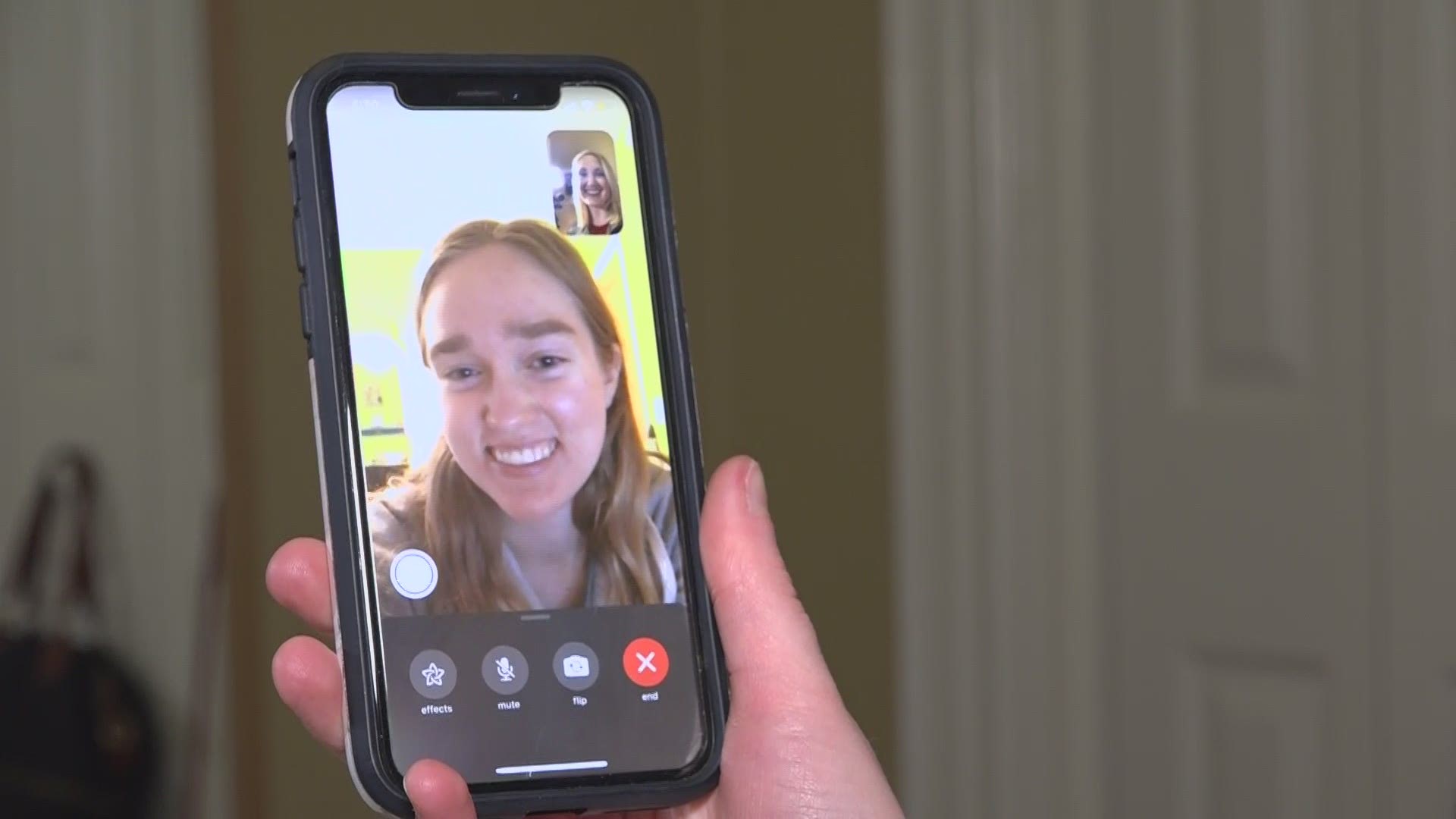If you're struggling to feel connected to people during the coronavirus pandemic, you're not alone. Social distancing can be difficult, even when social media apps like Zoom, FaceTime, and Skype exist. Somehow, speaking with someone, whether it's a loved one or a coworker, through a camera on your cellphone or computer doesn't feel quite the same as being face to face.
Now, mental health and social conversationalist experts are offering advice to people who want to improve their social lives while social distancing.
De-clutter and organize
Once you decide where you want to make your calls, try to clean that area by picking up anything not in its place and organizing. A cluttered background can make your shot distracting to the people you're speaking with.
"We want the people with whom we're speaking to be able to focus on us," explained Janet Parnes, a social conversation and etiquette consultant. "If there are stacks of papers, piles of books, and a bouncing beagle in the background, their attention is going to be distracted."
Your setting doesn't have to be entirely empty -- but the cleaner it is, the better.
Make eye contact
As strange as it might feel, you should try to look directly into the camera while speaking to make direct eye contact with your listeners. This may take some practice, since it's an unnatural thing to do, but it will help your audience feel more connected to you, and it will prevent you from being distracted by what's going on below in your screen.
Additionally, if you are in a group Zoom setting, try changing your view from 'gallery' to 'speaker'. That way, instead of seeing a number of faces and not knowing where exactly to look, you will be able to be more connected personally to each person while they are chatting.
"I’m really going to just engage with whoever is speaking in the moment," Susan Slick, the director of community care services at Northern Light Acadia Hospital, explained about how this technique works.
To better facilitate eye contact, raise your camera to eye level to position yourself correctly in the frame. You want to leave some head space and show part of your torso.
Stay in the present
Most of us are, quite literally, living in a virtual reality now -- so, sometimes it's challenging to remember to live in the moment. Still, by doing so, you can improve the conversations you're having online, simply by better picking up on social cues.
To do so, Parnes recommends speaking more slowly, so that the listener is not overwhelmed. You should pause in your speech between sentences and phrases, in the case that there is a delay for your listener. If you are the person listening to someone speak, try not to interrupt them accidentally.
"When someone has finished speaking, or you think they are finished speaking -- wait a couple of seconds before interjecting," Parnes advised.
It also helps to eliminate background noise, if you're in a group setting. The 'mute' button is your friend! Just remember to turn it off when it's your turn to pitch into the conversation.
Find ways to be creative, too. Cindy Sturm, an LCSW and clinical supervisor at Dirigo Counseling Clinic, suggests taking simple measures to immerse yourself and the person you're speaking with in the same sort of environment.
"(If) you have a bottle of water that whoever you’re connecting with drink together; you have a cup of tea; you have a soda, a snack; you play a game," Sturm offered suggestions.
--
Despite all of their recommendations for improving video calls, experts say that this format is still far superior to just voice conversations. Seeing one another in similar situations reminds us in this together, even in an unprecedented time.
"I am, you know, self-isolating. I’m in my house, obviously," Slick expressed. "I can look at you in your house, too, so there’s a comfort in knowing that I’m not doing this by myself."
That's the primary message that Mainers and beyond want to spread -- we are together apart for the health and safety of our communities.
"Instead of calling it socially distant, we really need to be socially connected or physically distant," Sturm encouraged. "We want to be socially connected."

